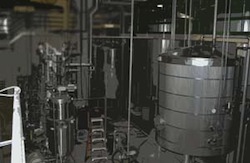In May of 2012, Gevo, Inc. announced the start-up of its bio-isobutanol plant in Luverne, Minnesota. Since then, the company says it has both produced and shipped commercial quality product in railcars for customers. One thing the company has learned is what works well and what needs to be tweaked. So the company has switched the plant to ethanol production while it refines its bio- isobutanol technology.
isobutanol technology.
“To date, we have proven we can produce bio-isobutanol, and do it on a commercial scale – years ahead of the competition,” said CEO Patrick Gruber, Ph.D. “This start-up is very typical of other start-ups we have done: you have to learn a lot in a very short period of time, both what works well and what needs to be adjusted. Early indications are that, while we are making significant progress towards economic production levels, we will not achieve our desired year-end run rate – instead we would expect to achieve that during 2013.”
“While we have made significant progress towards economic production levels, we have decided to optimize certain specific parts of our technology to further enhance bio-isobutanol production rates,” continued Gruber. He said that it does not make business sense to implement adjustments while having the plant in productions. So their strategy is to switch to ethanol production while the technology is refined.
Gevo has agreements in place with Sasol, Total, VP Racing Fuels, Mansfield Oil, and Land O’Lakes Purina. While the company is currently producing fuel for the transportation market, the company is also developing opportunities in the jet, marine and small engine markets as well as looking at the production of bio-isobutanol for biochemicals and biomaterials.
“In five short years, we have gone from start-up to commercial-scale production at the world’s first commercial bio-isobutanol production facility. Production start-ups are never easy, but we are years ahead of our competition and well on our way to realizing economic production levels during 2013,” Gruber concluded.

